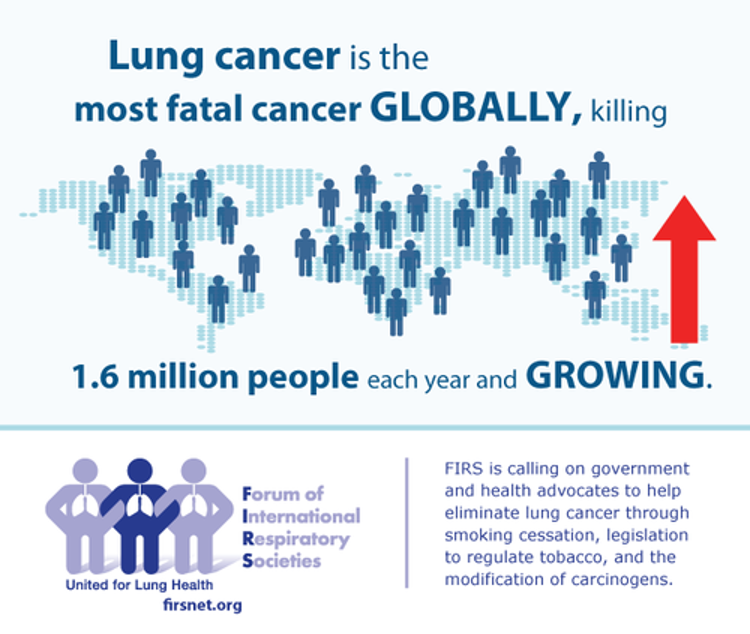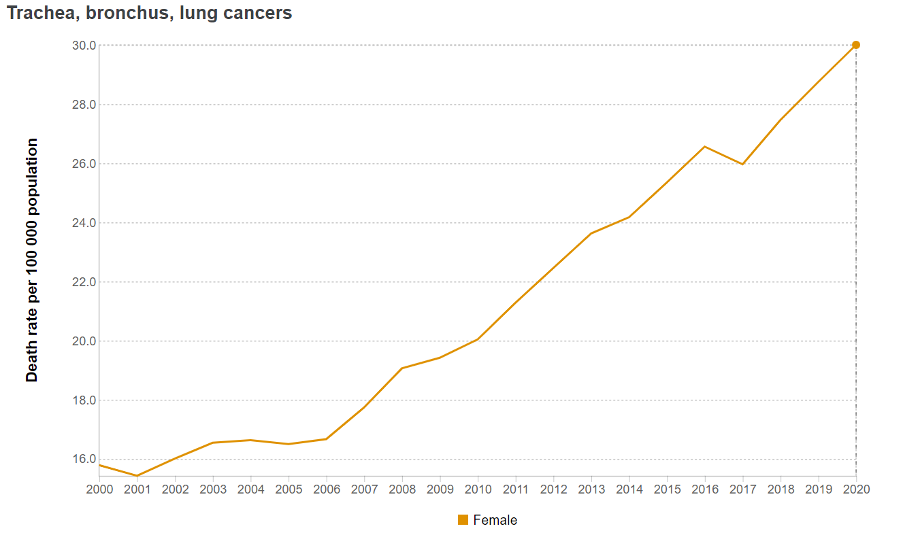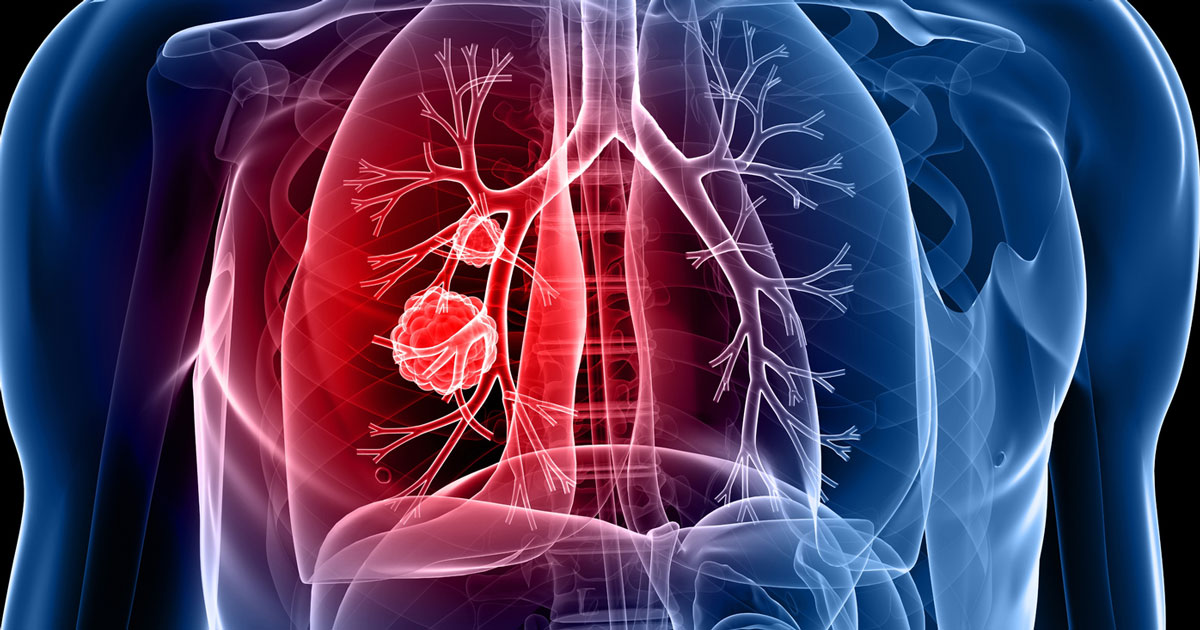By Charalampos Karouzos,
Cancer in medical society is a disease of great concern as it significantly influences patients’ life, decreasing its quality and simultaneously consists of one of the major causes of death, however, it would be imprudent to assess cancer only as a medical issue. Cancer has an important social aspect that along with its medical nature formulates a great health concern for individuals. Being a topic of public discussion either due to an unfortunate diagnosis or out of solicitude, conversations are being held that assist in raising awareness. However, raising awareness is beneficial only when the facts are right and especially for cancer and in this case lung cancer, there are many wrong or partially wrong statements circulating around. Myths about such an important health-baring disease impede the spread of knowledge and thus drive people in making uneducated decisions about their or somebody else’s life.
Lung cancer briefly is the second most common cancer in terms of incidences (2.21 million cases in 2020) after breast cancer and number one in cancer-related causes of death (1.8 million in 2020), doubling the second cause being colorectal cancer (916,000 cases in 2020). Lung cancer if untreated, affects primarily the necessary life function of the lungs, causing their destruction along with possible metastases that can give off secondary symptoms leading to systemic multi-dysfunction and death.

To start, myths about lung cancer deal with almost all the aspects of the disease from its prevention to the therapy selection and other exacerbating factors, but the most widely circulated myths have as a common denominator tobacco smoking. It is very well known, in fact, it is also written in cigarette packages, that smoking can cause lung cancer and that’s true, however, a percentage of around 10-20% of lung cancer patients were non-smokers. The social stigma of only smokers developing cancer is far from the truth and as Dr. Hirsh, director of thoracic Oncology at Mount Sinai’s Tisch Cancer Institute, in New York City, stated in his interview with Medical News Today, “That is not correct, and unfortunately, it is a very hurtful myth and causes stigma”. Tobacco smoking significantly increases the risk of all the different types of lung cancer and practically is the single cause of some types of lung cancers (small cell lung cancer and squamous cell lung cancer).
In addition, a common belief of public opinion is that there is no way to reduce one’s risk for cancer development. Although it is true that the individual’s genetic predisposition to cancer development cannot be altered, current data suggest that most cases of lung cancer are either caused almost exclusively or are greatly influenced by environmental factors. Risk is significantly increased among smokers (primary and secondary smokers), people exposed to radiation or other carcinogens, obese patients, and individuals having unhealthy lifestyles.
Lung cancer is a disease that especially in the past but also today, affects older adults, however, current data run counter to that and indeed there has been a great increase among lung cancer diagnoses in people younger than 50, particularly women. The idea of the past that lung cancer affected old males that used to smoke their whole life is now fading, as data reveal that cases among men are decreasing whereas among women, which had always lower numbers, are now skyrocketing. In fact, the WHO data show that in western countries and in this case in Greece lung cancer deaths among females per 100k were around 15 cases, whereas in 2020 the cases doubled to 30 doubled in the short time frame of 20 years (!). The great increase is not a consequence of a drastic change in these 20 years but primarily shows the gradual effects of smoking in the latest decades, during which smoking has been socially accepted among women. Indeed, the number of male smokers is decreasing and female smokers are increasing.

Furthermore, smoking does not affect the individual based only on the years someone has been smoking but on a dosage-depended manner. It may seem obvious that the higher the number of cigarettes smoked, the higher the risk. However, the urban myths state that should someone smokes for years, there is no point in stopping as enough damage has already been done. Data consistently prove that smoking cessation even in a multi-decade heavy smoker is of great benefit not only in terms of lung cancer but also regarding other high-burden conditions including heart diseases, diabetes, and osteoporosis. In addition, tobacco is not the only inhaled product linked with increased lung cancer risk, cannabis, vaping, and e-cigarettes are also included in the list. Individuals and especially the younger generation hold the opinion that these products are safer as they are more “natural” and not enough deaths have been linked to these products. It is true that data have not been 100% conclusive on the absolute effect of these products due to the lack of long-term studies but our currently available data indicate an increased risk among all smoking individuals. Cannabis in particular, due to its social decriminalization and its legal recreational use in some countries, has been presented as a safe alternative, a statement far from the truth.
Moreover, symptoms and treatment of lung cancer are topics that myths have thrived in, as primarily the concern of people, and emotions can sometimes overwhelm the facts that are difficult to be interpreted correctly. Firstly, lung cancer can present with symptoms in the early stages but that’s not the most common scenario as initially, such neoplasms remain clinically quiet. The onset of symptoms usually includes persistent unexplained cough, hemoptysis (coughing blood), or tiredness and weight loss present in the advanced stages of the disease. Secondly, the diagnosis of lung cancer is not always terminal. Most cases are diagnosed in advanced stages, making treatment significantly less efficient but current data reveal a cure rate of more than 60%.
To conclude, lung cancer, a disease of the modern human, that in 1900 was practically unknown, has had a devastating effect on public health, becoming one of the deadliest diseases of today. As a natural response, public opinion has been dealing with the issue more than ever in the past, failing however to deal with concerns using the correct facts. Misunderstandings regarding lung cancer can be very dangerous as false facts increase the human burden. Individuals concerned about the disease must refer to their family doctor who is trained to prevent, treat and inform the public about lung cancer, thus improving prevention treatment and minimizing human suffering.
References
- Lung cancer. nhs.uk. Available here
- Lung cancer awareness month 2022. iarc.who.int. Available here
- Lung cancer statistics. wcrf.org. Available here
- Medical myths about lung cancer. medicalnewstoday.com. Available here
- World Lung Cancer Day commemorates, celebrates and supports those impacted by lung cancer. ersnet.org. Available here




